
Oprah urges her 33.5 million Twitter followers to do Meatless Mondays
Oprah Winfrey has pledged to do Meatless Mondays and encouraged her followers on Twitter to join her.
Wayne Nacelle, the CEO of the Humane Society of the United States, sat down with Oprah on Sunday and she asked him what small things people could do in their lives to have a big impact for animals.
In the show Pacelle discussed the "schizophrenic" relationship we have with animals - they way we proclaim to love animals while continuing to exploit them for food, fashion, and entertainment. “We are in a moment where there is an awakening to a new way of bringing consciousness to how we treat animals around us,” Oprah suggested. “Listen,” Wayne answered, “we were asleep with our treatment of animals,” adding, “I think in the last five to 10 years, we’ve started to wake up.”
Wayne suggested one easy, high-impact action would be to join the Meatless Mondays campaign, and after the show Oprah sent a tweet encouraging her followers to join her on the pledge.

It is especially significant to get this pledge from one of the most admired and respected people in our culture.
Twenty years ago, when Oprah publicly stated that she was swearing off hamburgers, the meat industry sued her - her pledge had encouraged others to also do the same and caused beef futures to plummet.
During the height of the mad-cow scare in 1996, Oprah invited Howard Lyman, a cattle rancher turned vegetarian, onto her show to discuss controversial practices within the beef industry, including a process called "rendering," which involves turning cow organs into feed for other cattle.
Oprah exclaimed at one point that his revelations had "stopped me cold from eating another hamburger!". Beef prices plunged for nearly two weeks after the episode aired, eventually reaching a 10-year low.
In response, a group of angry cattle ranchers in Texas filed a $10.3 million lawsuit against Oprah claiming she had defamed the entire industry. After the jury ruled in her favor she remarked "Free speech not only lives, it rocks" and triumphantly proclaimed "I'm still off hamburgers".
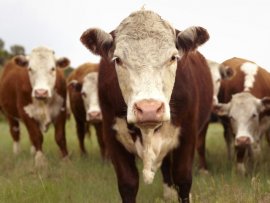
There are so many choices we face that affect animals, but no choice is more influential or ever-present as our food selections. The vast majority of animals used in our society are raised on factory farms.
Although Meatless Monday doesn't really solve the problem - there are six other days in the week - it has often been a stepping stone leading towards a completely cruelty-free lifestyle. Cutting meat from the diet once a week helps people discover meat alternatives and helps them realise they can actually survive without eating meat.
Taking part in Meatless Mondays will also reduce demand on the meat industry and mean less animals will be born into the misery of factory farms.
Don't care about animals? That's a shame. But maybe you'll be more interested in the health benefits. Going meatless once a week will reduce your risk of chronic preventable conditions like cancer, cardiovascular disease, diabetes, and obesity. It can also help reduce our carbon footprint and save precious resources like fossil fuels and fresh water - which will increasing become a problem as the global population expands.
There are numerous health reasons to eliminate meat consumption:
Reduce Heart Disease and Stroke: Vegetables, fruit, and whole grains have been shown to protect against cardiovascular disease. One study found that each daily serving of fruits or vegetables was associated with a 4% decline in coronary heart disease, and a 5% lower risk of stroke.[1] Another study found that a diet of 2.5 or more servings of whole grain per day was associated with a 21% lower risk of cardiovascular disease (heart disease, stroke, fatal cardiovascular disease).[2]
Limit Cancer Risk: There is convincing evidence that red meat and processed meat consumption increases the risk of colorectal cancer. There is also limited but suggestive evidence that red meat increases the risk of esophagus, lung, pancreas, and endometrium cancer and that processed meat consumption increases the risk of esophagus, lung, stomach, and prostate cancer. In contrast, a diet rich in fruit and vegetables decreases the risk of several types of cancers, including mouth, pharynx, larynx, esophagus, and stomach, evidence suggests.[3]
Fight Diabetes: Research suggests that plant-based diets, particularly those low in processed meat, can reduce your risk of type 2 diabetes.[4] Eating a plant-based diet can decrease total calorie consumption which helps you obtain and maintain a healthy weight, a key component to preventing and treating diabetes.[5]
Curb Obesity: Several large studies in Europe and the United States have demonstrated that people on plant-based, vegetarian diets tend to have a significantly lower body weight and body mass index (BMI). This may be in part because plant-based diets are rich in fiber (which is not found in animal products). Fiber contributes to fullness, resulting in lower calorie intake and less overeating.[6][7][8][9]
Live Longer: Evidence suggests that eating a diet rich in fruits and vegetables, and a limited amount of red meat can increase longevity, whereas red and processed meat consumption is associated with increases in deaths due to cancer and cardiovascular disease.[10]
Improve The Nutritional Quality of Your Diet: Going meatless encourages consumption of plant-based sources of protein, like beans and peas. Consuming beans and peas results in a higher intake of fiber, protein, folate, zinc, iron, and magnesium. Also, diets high in beans and peas are associated with lower intakes of saturated fat and total fat.[11]
For more information on the health benefits of cutting meat, there's a great documentary you can watch called Forks Over Knives:
References
1. Dauchet L, Amouyel P, Hercberg S, Dallongeville J. Fruit and vegetable consumption and risk of coronary heart disease: a meta-analysis of cohort studies. J Nutr. 2006;136:2588–2593; (2) Dauchet L, Amouyel P, Dallongeville J. Fruit and vegetable consumption and risk of stroke: a meta-analysis of cohort studies. Neurology. 2005;65:1193–1197
2. Mellen PB, Walsh TF, Herrington DM. Whole grain intake and cardiovascular disease: a meta-analysis. Nutr Metab Cardiovasc Dis. 2008;18:283–290
3. World Cancer Research Fund/American Institute for Cancer Research. Food, Nutrition, Physical Activity, and the Prevention of Cancer: a Global Perspective. Washington DC: AICR, 2007
4. Aune D, Ursin G, Veierod MB. (2009) “Meat consumption and the risk of type 2 diabetes: a systematic review and meta-analysis of cohort studies.” Diabetologia 52:2277-2287
5. Steyn NP, Mann J, Bennet PH, Temple N, Zimmet P, Tuomilehto J, Lindstrom J, Louheranta A. (2004) “Diet, Nutrition and the prevention of type 2 diabetes.” Public Health Nutr. 7(1A):147-65
6. Spencer EA, Appleby PN, Davey GK, Key TJ. (2003) “Diet and body mass index in 38,000 EPI-Oxford meat-eaters, fish-eaters, vegetarians and vegans.” International Journal of Obesity. 27:728-734)
7. Kennedy ET, Bowman SA, Spence JT, Freedman M, King J. (2001) “Popular Diets: Correlation to Health, Nutrition, and Obesity.” Journal of the American Dietetic Association. 101(4):411-420
8. Romaguera et al. (2009) “Adherence to the Mediterranean Diet is Associated with Lower Abdominal Adiposity in European Men and Women.” Journal of Nutrition. 139(9):1728-1737
9. Vergnaud et al. (2010) “Meat consumption and prospective weight change in participants of the EPIC-PANACEA study.” Am J Clin Nutr 92(2):398-407
10. Sinha R, Cross AJ, Garubard BI, Leitzmann MF, Schatskin A. (2009) “Meat intake and mortality: a prospective study of over half a million people.” Arch Intern Med. 169(6):562-71
11. Mitchell DC, Lawrence FR, Hartman TJ, Curran JM. (2009) “Consumption of dry beans, peas, and lentils could improve diet quality in the US population.” Journal of the American Dietetic Association. 109(5):909-13
Subscribe!
Love this content?
Receive our awesome newsletter straight to your Inbox!

 Your email address will always stay private.
Your email address will always stay private.
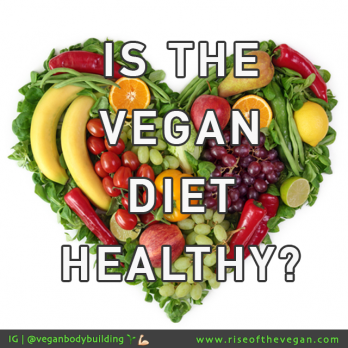
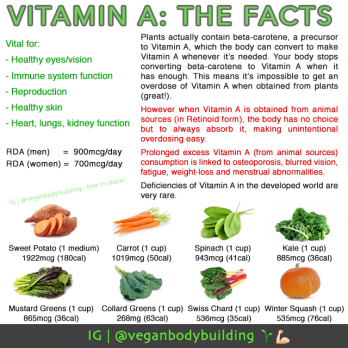
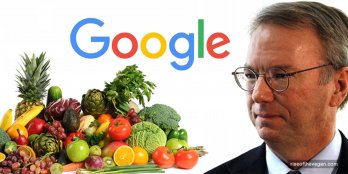
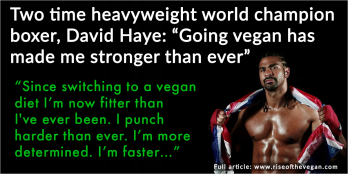
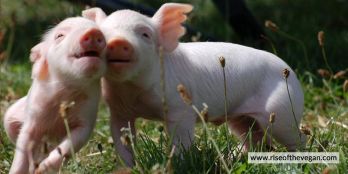



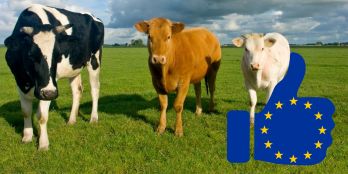

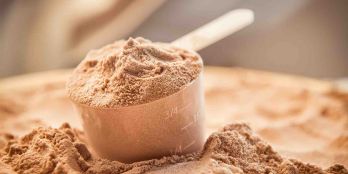
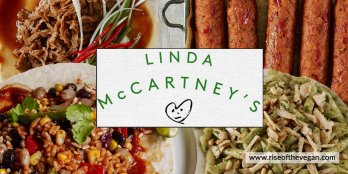

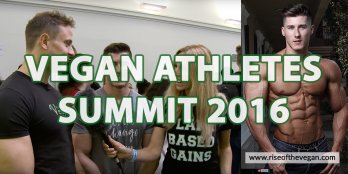


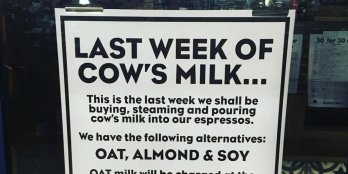


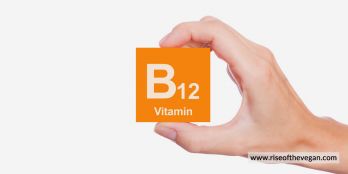
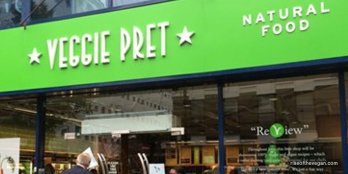

Comments